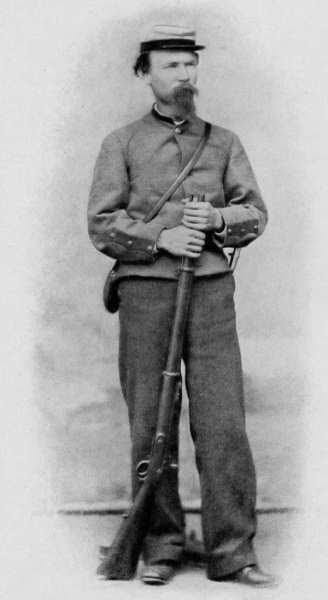| Berry Benson was a young Confederate sharpshooter who served in General Samuel McGowan’s First South Carolina Brigade. His memoirs were recently published by the University of Georgia Press as Berry Benson’s Civil War Book.
He was in uniform and there for the Civil War’s first gunshots in April of 1861. He distinguished himself in battles with Robert E. Lee’s Army of Northern Virginia, but almost three years later on May 16, 1864, he was captured inside the Union lines and sent to the prisoner of war camp in Maryland. But Barry didn’t like this, so soon after arriving he managed to slip into a river and swim away. He was recaptured and transferred to a notorious prison camp much farther north in Elmira, N.Y. (named Hellmira by the prisoners). Berry must have liked this even less, for he and eight other prisoners began digging an escape tunnel.
This resulted in the only successful breakout from Elmira. His comrades headed for Canada and out of the war, but Berry headed south to rejoin his sharpshooter unit. Amazingly, he made it: in late 1864 he got to Virginia. After visiting his home on leave, he got back in the fight, and was with Lee’s army to the end at Appomattox.
Berry recounts in his diary shortly before General Lee’s surrender April 9, 1865
“On Sunday, April 2, 1865 … we learned that five miles to our left, at the very point held by McGowan’s Brigade all winter, the enemy had stormed and carried the defenses of Petersburg. Our corps commander, General A. P. Hill, had been killed. After stubborn resistance, Fort Gregg had fallen. Petersburg and Richmond were being evacuated; the whole army was in retreat. …Pretty soon, the enemy coming in hot pursuit, we began sharpshooting. Making a stand at any favorable point, we fought the advance skirmishers until they would begin to flank us, then hastily retreated to take up another stand. …
April 9, 1865 we reached the neighborhood of Appomattox and came to a halt and were drawn up in line. … Then I saw a Federal officer come galloping in carrying aloft a white handkerchief. …
… For myself, I cried. I could not help it. And all about were men crying…
So Blackwood and I left the little tattered, weary, sad, and weeping army— our army—left them there on the hill with their arms stacked in the field, all in rows—never to see it any more. Telling Clarke and Bell goodbye, we crossed the road into the untenanted fields and thickets, and in a little while lost sight of all that told of the presence of what was left of the army that through four long years, time and again, had beaten back its enemy, keeping Richmond, its capital, sale and free. …” |
